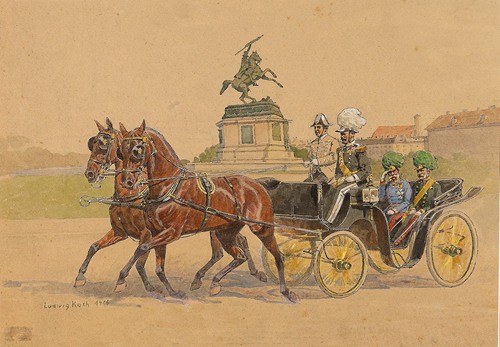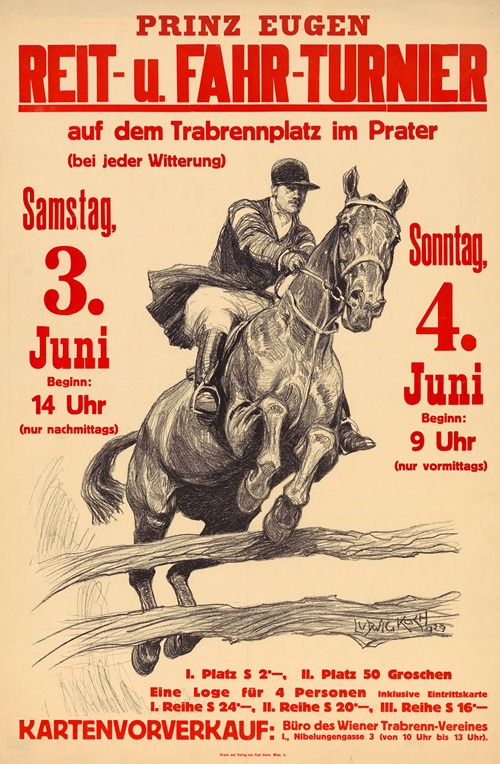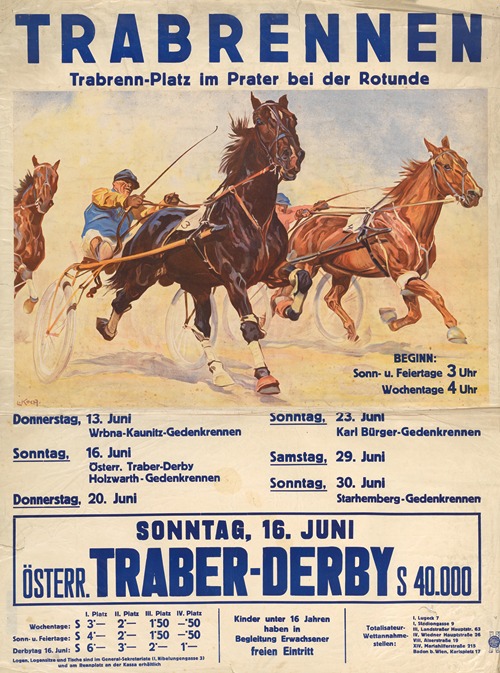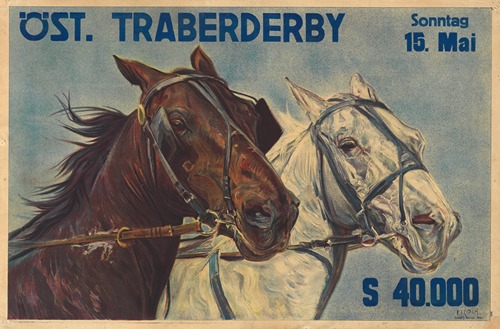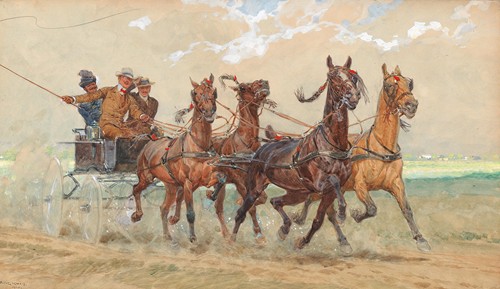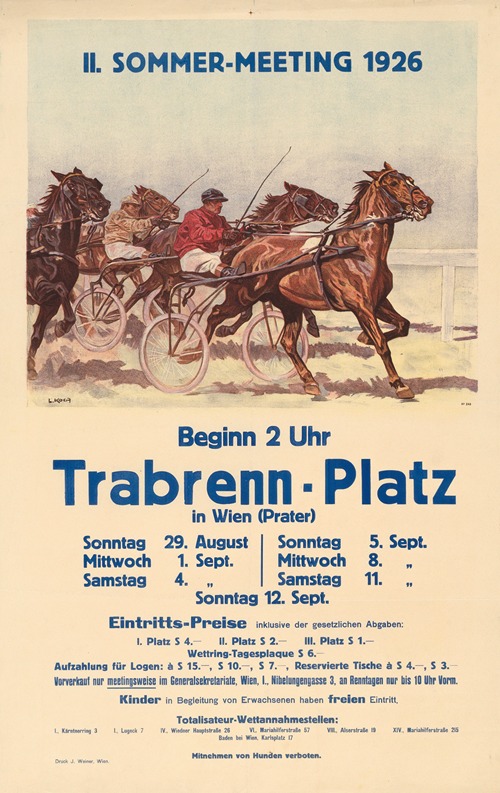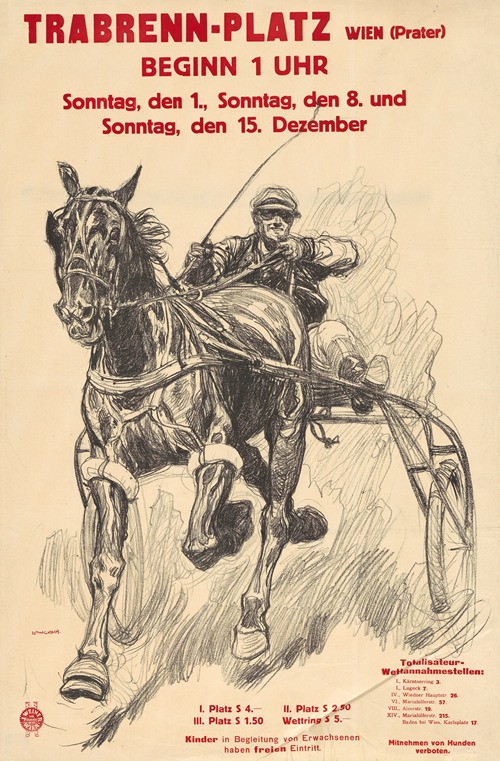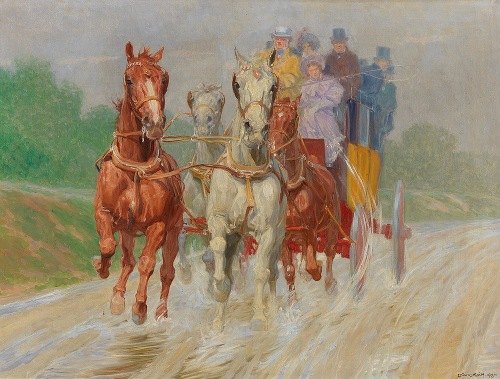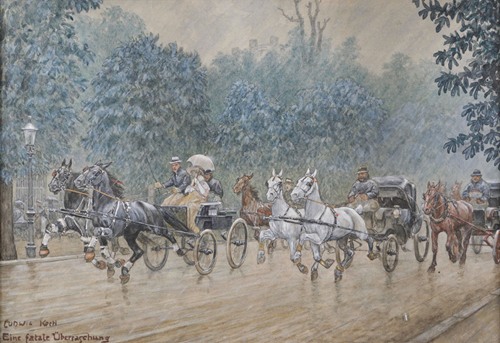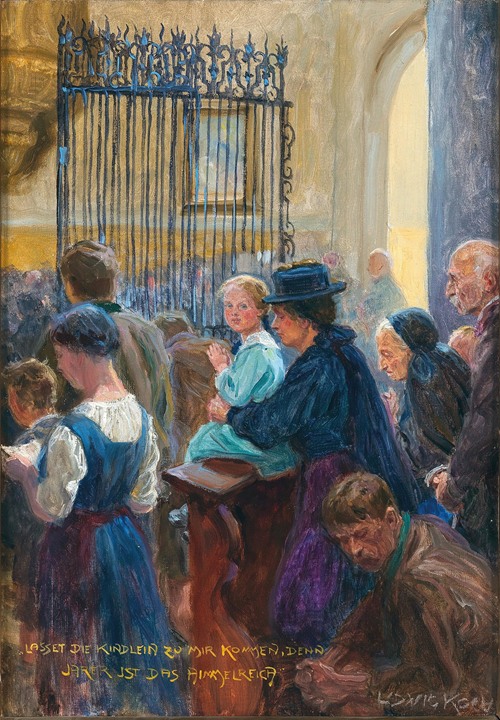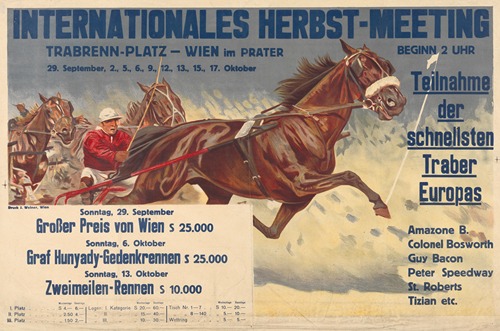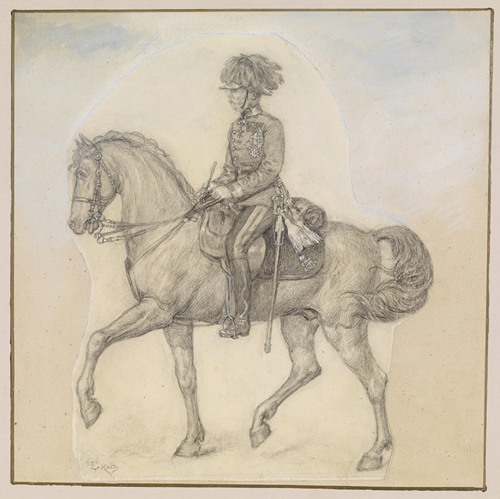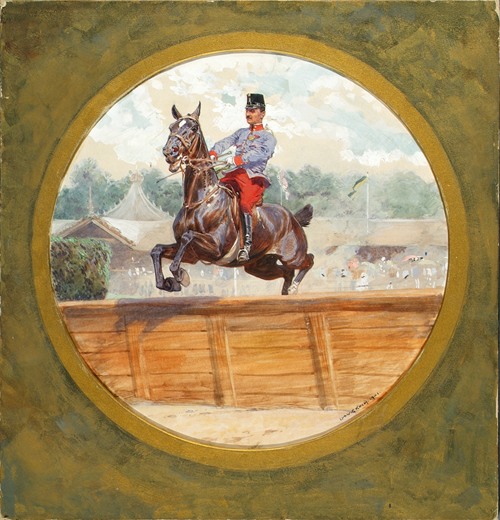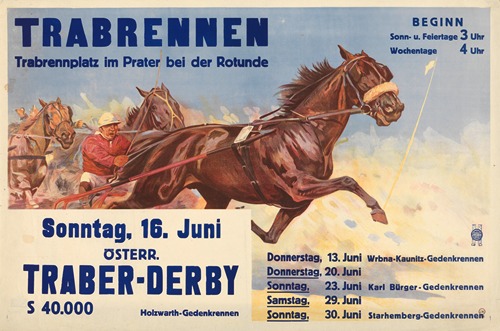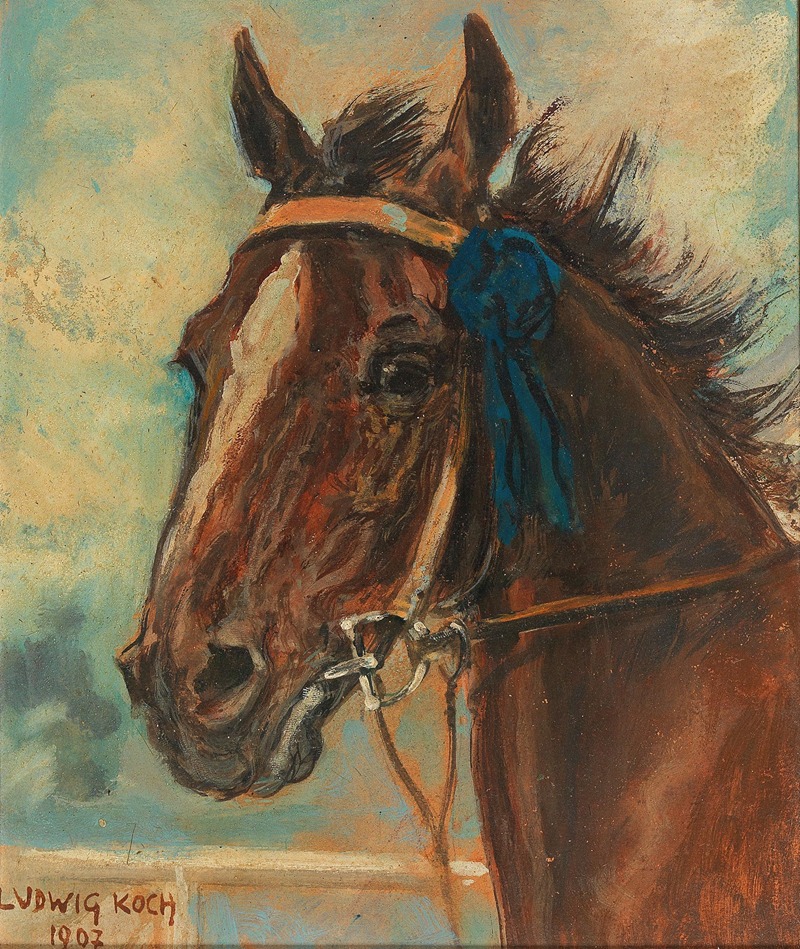
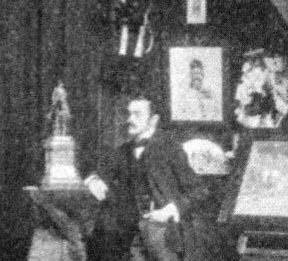
Ludwig Koch was an Austrian painter, sculptor and illustrator.
Koch became known mainly as a horse and genre painter. He was a guest at the Spanish Riding School for many years, and recorded many of the school jumps artistically. In addition, he devoted himself to depictions of military history. He studied at the Academy of Fine Arts in Vienna from 1883 to 1891 and was a pupil of Siegmund L'Allemand and August Eisenmenger. Afterwards he was noted for paintings of Austrian military history, he received the special school prize for the painting General Pappenheim in 1889. In 1891, at the Viennese annual exhibition, he displayed the painting Baptism of Fire of the Dragoon Regiment Windisch-Graetz in the Battle of Kolin.
Even before 1914, Koch created portraits and uniforms of the Austro-Hungarian Army, which were often reproduced on postcards. He briefly served in the war as a war painter along the Italian front, but had to retire due to a kidney disease. Even after the collapse of the Austro-Hungarian Empire, Koch dedicated many works to the old army, but also created uniforms for the army of the First Republic.
In addition to military subjects, the main themes of his genre paintings were scenes of the Viennese and of the imperial house (e.g. oil painting Ride of the Archduke - Crown Prince Franz Ferdinand to the Maneuver at the 590th art auction of the Dorotheum Vienna, 1970).
Koch published several landscape collections and was an illustrator of many hippological works. One of his most famous works, "The Art of Riding in the Picture" is especially renowned among riders. He was also a member of the so-called Siebener Club, an art association mainly composed of architects (including Josef Hoffmann, Joseph Maria Olbrich and Joseph Urban).
In the 1920s Koch was invited to the United States by the U. S. Polo Association, members of which had heard him spoken of abroad as "the finest painter of horses in the world," to come to the U. S. and make pictures of the International Polo matches. Despite the Association's attempt at promotion, Koch remained relatively unknown and eventually decided to return to Europe.
Ludwig Koch was buried in Vienna at the Hietzing cemetery in a dedicated grave (group 39, number 241).
